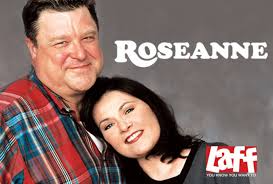
Roseanne, the iconic sitcom, didn’t just provide laughs – it changed the TV landscape forever. Airing from 1988 to 1997 and then returning in 2018, Roseanne broke barriers in ways no other show had done before. At its heart, the show centered on a working-class family, led by the no-nonsense matriarch Roseanne Conner, played by the bold and often controversial Roseanne Barr.
What made Roseanne revolutionary was its refusal to sugarcoat the struggles of everyday Americans. Unlike the picture-perfect families of other sitcoms of the time, the Conners were real – they dealt with issues like financial instability, body image, addiction, and the challenges of raising children in a changing world.
But there was more to Roseanne than just its gritty realism. It introduced an era of socially conscious sitcoms, providing a platform for discussions about mental health, family dynamics, and societal expectations. The show’s unapologetic approach made it stand out, and its cultural impact cannot be understated. For many viewers, Roseanne was more than just a show – it was a reflection of their own lives.
The show’s success can be attributed to its ability to blend humor with hard-hitting commentary. Roseanne Barr’s sharp wit and fearless comedic timing helped deliver punchlines that resonated deeply, while also highlighting the real problems faced by working-class families. For many, watching Roseanne felt like coming home, as it presented a world in which they could see themselves represented – flaws and all.
Whether you loved or hated Roseanne Barr herself, it’s impossible to deny the impact the show had on TV. By tackling taboo topics and bringing working-class issues to the forefront, Roseanne laid the foundation for a new era of television, one in which shows could entertain while also challenging societal norms. To this day, it remains a cultural touchstone, and its legacy continues to inspire new generations of viewers.
